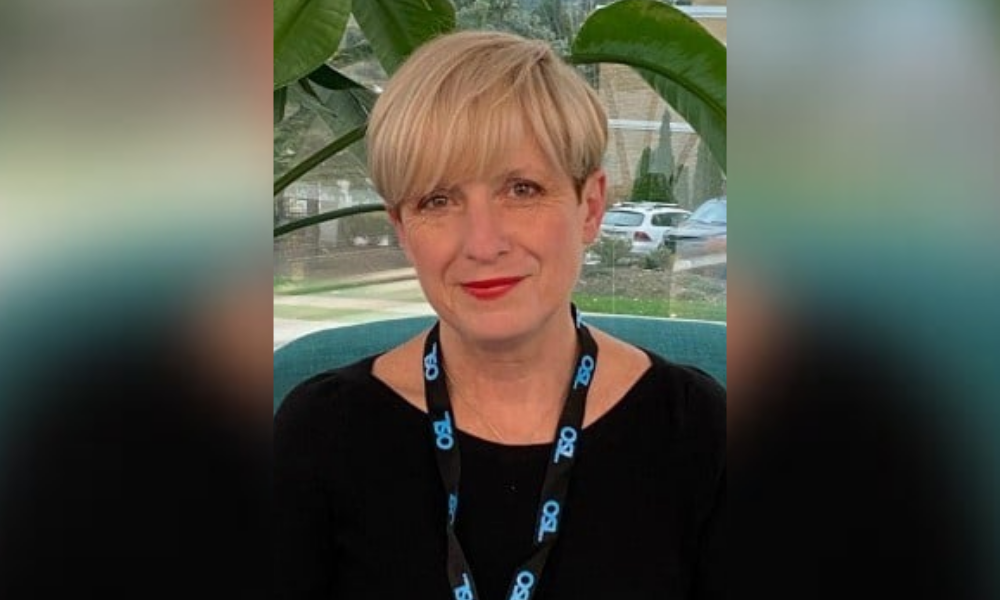
Cynthia Reale, VP of HR, on dealing with death and how she implemented measures to help employees and their families

OSL Retail Services suffered its first casualty within two months of the COVID-19 pandemic.
“We were stunned,” Cynthia Reale, the company’s vice president of human resources – North America, told HRD. “I just wondered how many more.”
With 7,000 employees across the United States and Canada, Reale figured the chances were high that more deaths would follow. Headquartered in Ontario, OSL provides some of the largest retailers with sales representatives in the consumer technology sector. Clients include Lowe’s, Mastercard, Sam’s Club, Samsung, Direct TV and other global brands.
However, Reale says the majority of OSL employees work at Walmart, which never closes even during natural disasters. COVID-19 was no exception.
“There was lots of anxiety and uncertainty, especially early on,” Reale says. “I would make calls to people and when they told me they tested positive for COVID, I wondered if it was a death sentence.”
As more employees passed away, Reale and her team of 43 HR professionals spent a lot of time talking about death. They spoke with colleagues, parents, siblings, spouses, anybody that needed information, needed to vent or just needed a shoulder to cry on. It became an unfortunate opportunity to emphasize the humanity in human resources.
“The people on my team got into HR for that reason, so this was their time to show that they really cared about their coworkers,” Reale says. “It was tough emotionally, but we rallied the troops together.”
Read more: HR leaders must be ready for next COVID wave, says Cegid executive
OSL has benefit providers that helped with grief counseling, so the HR department was tasked with staying on top of constantly evolving guidelines and restrictions, which fluctuated from state to state and province to province. There was constant communication between HR and each store to provide updated information regarding health and safety concerns and policies.
Additionally, HR became the contact tracing hub. Reale says they processed 4,000 calls in the US alone, working nights and weekends to back track and determine who infected employees had encountered during their previous shifts. In between those calls, HR was placing people on medical leave and urging everyone to get tested.
While all of this was going on, HR still had to ensure that non-infected employees could safely head into work. “My team struggled with that, questioning how fair it was to tell people to go into the stores while we were working from home,” Reale says. “But I told them everybody has a role. Your role is to be accessible, understand there’s lots of stresses going on, provide guidance and make sure people get paid.”
Financial security has been Reale’s top priority since joining OSL in January 2020. She asked the company’s leaders if they had ever considered giving employees access to funds before payday. She says they had never heard of such a concept, but were certainly willing to experiment to help employees during the pandemic. On April 17, 2020, the company went live in the US with on-demand pay provider DailyPay, and within four hours, 800 employees had registered. Currently, the company’s adoption rate is 85%.
DailyPay has also helped OSL with recruitment and retention, especially during the Great Resignation, in which a rapidly growing number of Americans are quitting their jobs. Since launching the service, the company surveyed its employees to get direct feedback: over 80% said they are more able to plan for the future and pay their regular bills on time since using DailyPay. An equal percentage of employees said that their opinion of OSL has improved since the company implemented DailyPay.
“Maybe it’s not an HR thing, but it’s an employee engagement thing,” Reale says. “Look at who you’re servicing and how you can help them. It might flop, but you go out and see what’s there to try to make a difference.”
In another response to the pandemic, Reale implemented a company-wide life insurance policy. Instead of waiting for a probation period to end, which typically lasts anywhere from 30 to 90 days, new hires receive life insurance on their first day with OSL.
“After the first individual passed away, I said I will not do this again,” Reale says. “We at least have to have a safety net for the family. If I do nothing else, that will be my legacy.”